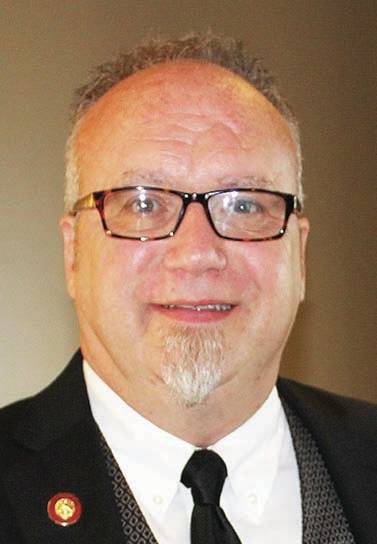This combat pilot was not shot down
Published 6:01 am Saturday, June 29, 2019
By Dr. Vivian Blevins
Columnist
At times we say things, and we wish we could walk those comments back. With the media’s close monitoring of certain individuals, their missteps become news and an indelible part of the public record- even when they recant.
This is undoubtedly the case of President Trump’s comment , “He was a war hero because he was captured, I like people who weren’t captured.”
In the U. S. Air Force Academy class of 1964, Capt. Edward J. Mechenbier and Capt. Guy Dennis Gruters were captured while serving America in the Vietnam War (You can call it a conflict, but I chose to call it a war),and each spent five plus years in prisoner of war camps.
Col. Philip A. Roberts, a combat pilot aboard an A-1 Sky Raider in Vietnam in 1969-1970 and a graduate of the class of 1964, was not captured, and I’d like to tell you a small part his story.
Of his time in Vietnam, he says, “I should have been one of the guys left over there. I was one lucky pup.”
There were 34 students in his high school graduating class outside of Dayton, Ohio, and the curriculum was limited. He was blessed to have a high school math teacher who tutored him privately through calculus so he could be prepared for all the academic and career work that was to follow.
His assignment in Vietnam was classified and centered around a special operation to prepare for the Hanoi Hilton raid. He had three missions: the rescue of pilots who were down as part of a “daisy chain” operation; interdiction day and night on the Ho Chi Mein Trail to determine where the enemy was moving so that with four radios, he could communicate that information from Hickham Field to the Pentagon as needed; and infiltration/exfiltration of special teams who needed to be placed in strategic areas.
He has an interesting story regarding the pilot-rescue component. “I was in northern Laos to pick up a downed pilot. He was screaming repeatedly on his radio. I told him, ‘If you don’t get quiet, we’re gonna leave you. Now position yourself on your parachute.’ From my vantage point in the air, I could see the North Vietnamese Army coming, and I needed to straighten him out, fast.”
He continues, “There’s a certain mystique associate with flying. I felt there was something for me to do each day, and if I did it well, I would survive. I never thought about not coming back. There is a thing I call risk-reward planning. That means there is the rote training, but when you’re in a situation where you’ve never been before, such as an explosion and your wings are almost inverted, close to the ground, not level, your intellect tells you what to do.”
Roberts’ wife Jonell had a premonition that he was not coming back when he was deployed to Vietnam, so she and their first daughter, Deborah, went to live with her parents in Rockford, Ohio.
Roberts, however, says, “The good Lord decided that there was something else for me to do, so I got back with all those wanting to shoot me down.”
Roberts has achieved in a host of areas in government, business, and education and has received a long list of awards.
Of his nine Air Medals and five Distinguished Flying Cross Awards, Roberts says, “I’m proud of them in the context in which they were awarded me; however, there were many who did much more than I ever did and never got any. In the case of awards, it’s not always fair.”
With extensive experience in U.S. missile programs and with North Korea’s Kim Jong Un threatening the U.S. and its allies with missile strikes, Roberts says, “What he’s doing is apparent: He is a lackey for all those nations, China, Iran and militant Islamics. We must be aware of it. We never get a strategic position, so we’re at a great disadvantage. They can take advantage of us because we have the freedom to change our minds, and we often do. We don’t do things strategically. One president I’m aware of who did a good job of planning strategically was Nixon, he and his cabinet- especially Kissinger. You name a country at that time, and they had a strategy for our relationship with that country and what we should be seeking.”
Like all career military men and women, Roberts has stories: of how, at age 32, he faced down a three-star general in the Pentagon one night about what should be classified and what was stupid to classify such as basic physics; of going to jump school at Fort Benning as a thirty-two year old major and being harassed by the sergeant in charge of the jumps with the “Stand up; hook up,_______ go” mantra; and of asking his supervisees in DC to come up with a slogan for a two-foot wrench he had been given by a neighbor in South Carolina. He had mounted the wrench on a board and placed it in his new office. The winner of the slogan completion submitted the following: “I ordered a wench and got this.”
So what is Roberts doing now? He’s still working, but he’s also singing solos at the church where his wife Jonell is organist. Thank you for your decades of service to our great country., Col. Philip Roberts, Ph.D.
Dr. Vivian Blevins is a Harlan County native. She has taught undergraduate and graduate students as well as prison inmates, and now teaches communication and American literature classes at Edison State Community College in Ohio. Reach her at vbblevins@woh.rr.com.






